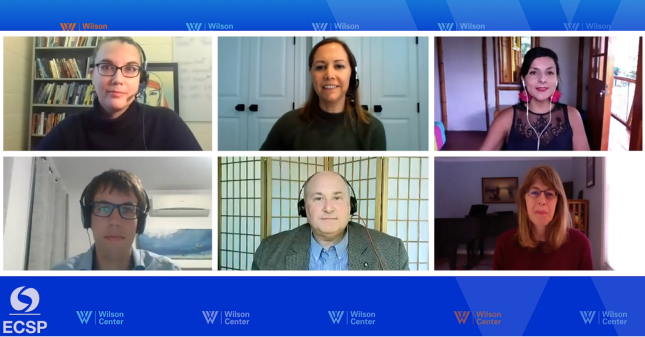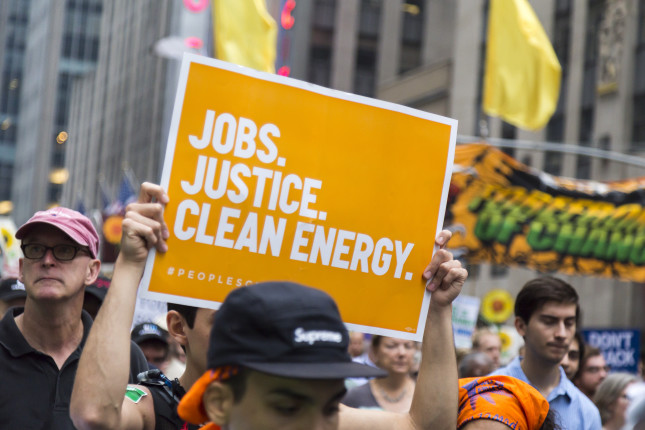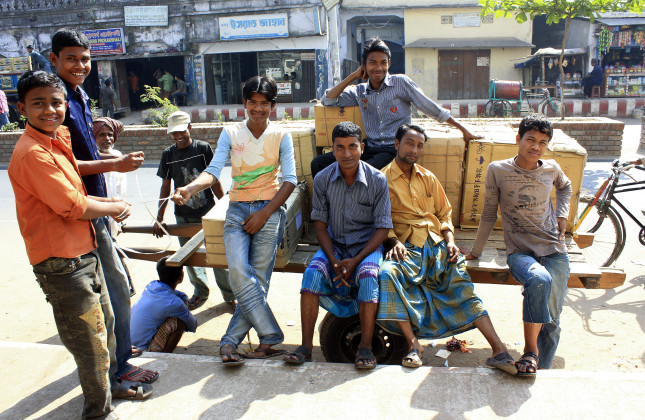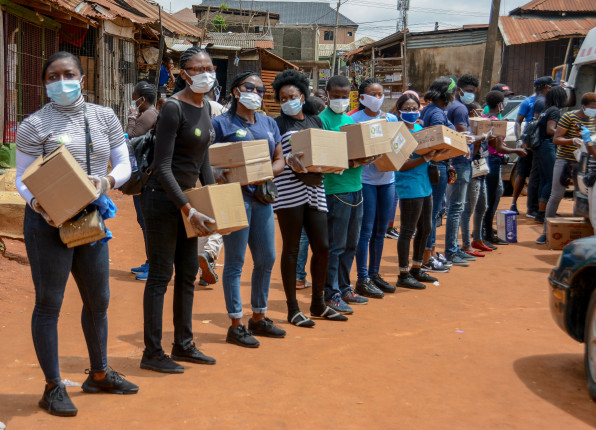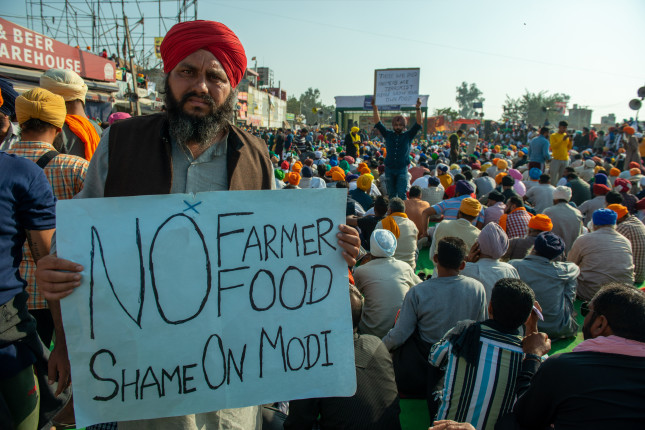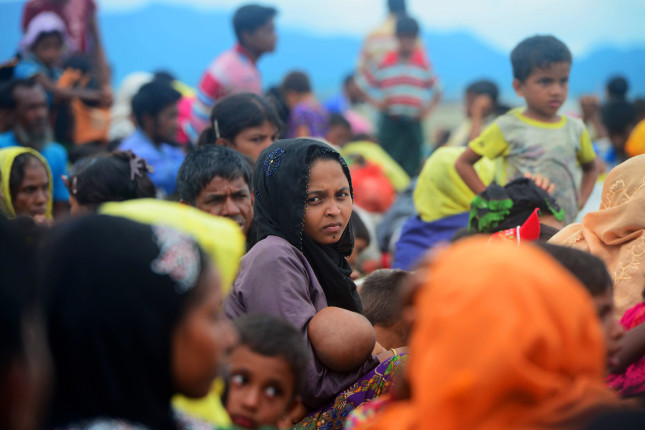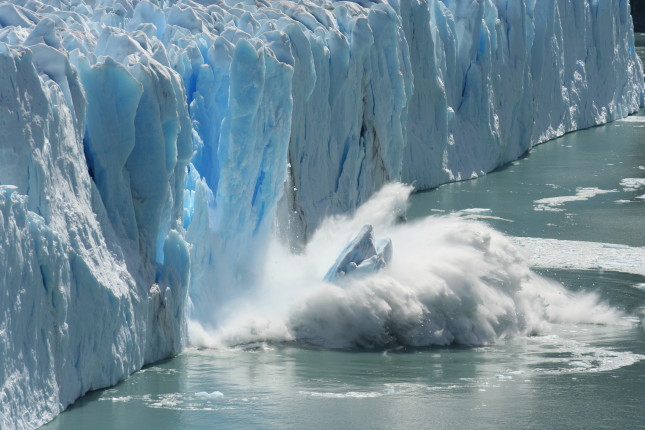-
A New Year Brings Enduring Challenges: Financing for Water and Sanitation Utilities During COVID-19
›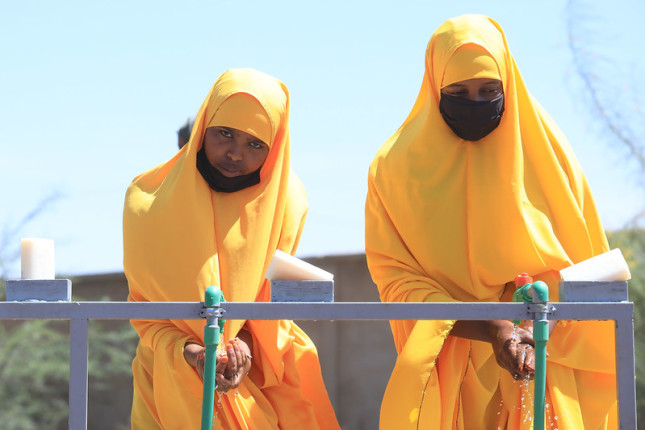
Eleven months have passed since COVID-19 was declared a global pandemic by the World Health Organization (WHO). As we rang in the new year, the world surpassed two million deaths due to COVID-19. While it is encouraging that 77 countries have distributed 168 million COVID-19 vaccine doses, only a small fraction of these are in low-income countries. Vaccinations may not be widely distributed in most of sub-Saharan Africa until 2022-2023. Furthermore, the new COVID-19 variant recently discovered in South Africa is estimated to be 50 percent more contagious, underscoring the need for a collaborative international response.
-
Experts Spotlight Bottom-Up Approaches and the Impacts of Conflict on Infrastructure in the Next Wave of Environmental Peacebuilding
›
“For 30 years, a community of researchers, practitioners, and policymakers have been working to untangle the complex relationships between environmental change and human and national security, and find entry points for policies and programs that build on these connections to create a more resilient and sustainable peace,” said Lauren Risi, Project Director of the Wilson Center’s Environmental Change & Security Program at a recent event that featured contributors to a new special issue of International Affairs on environmental peacebuilding.
-
Top Biden Climate Advisor, Others Preview 2021 Energy and Enviro News
›February 12, 2021 // By Joseph A. Davis
White House climate advisor Gina McCarthy gave an exclusive preview of the Biden administration’s Jan. 27 rollout of climate initiatives to more than 1,100 journalists, environmental experts and others watching a virtual program organized the same day by Society of Environmental Journalists.
The SEJ’s ninth annual Journalists’ Guide to Energy & Environment look-ahead event, entirely online due to the pandemic, was hosted for the second year by the National Geographic Society and co-sponsored by the Wilson Center.
-
Early Interventions in Men’s and Boys’ Health and Well-Being Have Lifelong Effects
›
“How do we incorporate more men into the work that we’re doing?” said Dominick Shattuck, Director of Monitoring, Evaluation, and Learning for Breakthrough ACTION at Johns Hopkins Center for Communication Programs (CCP), at a recent event hosted by the MenEngage Alliance. The event focused on interventions to meaningfully engage men and boys in health programming, and how “life course theory” can help determine the best timing for male engagement.
-
Pan-African Response to COVID-19: New Forms of Environmental Peacebuilding Emerge
›Guest Contributor // February 8, 2021 // By Elaine (Lan Yin) Hsiao, Fakunle Aremu & Ousseyni Kalilou
Early predictions about COVID-19’s impacts on Africa suggested that the continent would be a disaster zone marked by weak medical systems collapsing under strain and undemocratic states failing to provide social services to destitute populations. These predictions did not come to pass. Instead, many countries across the continent stepped up early on to join the world in curtailing the spread of COVID-19. The second order effects of the virus have been significant, however. Despite the low numbers of infections and deaths, lockdowns and the decline of a large percentage of informal trade and commerce in Sub-Saharan Africa have sent the region’s economy into recession, with increased inflation rates, widespread unemployment, and increased food insecurity. It’s within this context that collaboration (internationally and within the continent, between governments, the private sector, and local communities) to protect the environment—and by extension enhance livelihoods, promote sustainable development, and achieve enduring peace—has taken new forms.
-
Zafar Imran, Le Monde diplomatique
Climate Change in the Indian Farmers’ Protest
›
The ongoing farmers’ movement in India has taken the world’s largest democracy by storm. Hundreds of thousands from all over the country have laid siege to New Delhi for more than two months. As both the protestors and the government dig their heels in, the chances of confrontation and violence are increasing by the day.
-
In Humanitarian Settings, Addressing Gender-Based Violence is Paramount
›
“One hundred thirty-seven women are killed by a family member every day,” said Beth Schlachter, Executive Director of Family Planning 2020. “That’s a staggering statistic.” She spoke at a recent Wilson Center event about gender-based violence (GBV) in conflict and humanitarian settings in partnership with CARE, the International Rescue Committee (IRC), Save the Children, and the Women’s Refugee Commission. The event was a part of a Wilson Center series recognizing the United Nation’s “16 Days of Activism Against Gender-Based Violence” and commemorated our friend and colleague, Jennifer Schlecht.
-
Tip of the Iceberg: Polar Ice Loss Effects the Planet
›
When the United States purchased Alaska from Russia, Americans considered the “frozen wasteland” to be a reckless, wasteful acquisition. What could ice possibly offer?
In fact, polar ice is a critical resource for the Earth. The summer and fall of 2020 marked the lowest sea ice extent ever recorded in the Arctic Ocean, and the Intergovernmental Panel on Climate Change (IPCC) says contemporary September sea ice extents are so low that they are unprecedented in at least 1,000 years. Moreover, collapses in the ice shelves of West Antarctica, Canada, and Greenland raised concerns in 2020. The immediate effects of climate change in the polar regions are merely the tip of the iceberg—ultimately, they have profound effects on climate and communities around the world.
Showing posts from category *Main.


